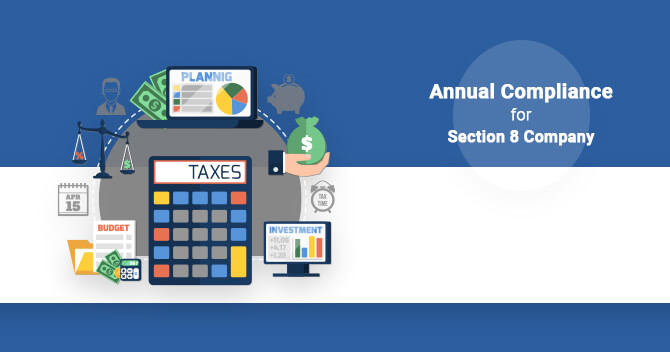Awarding or appreciating your employees is one of the ways that companies usually follow to retain their employees and get the best out of their talent. Sweat Equity share is one such way used by the company where the company makes the share-based payment to its employees at a discount or for consideration other than cash. It is a reward given to the employees for their contribution to the development of the company. Here in this article, we will see the detail of the Procedure for the Issue of Sweat Equity Shares.
Which law defines Sweat Equity Shares?
As per Section 2(88) of the Companies Act, 2013[1], Sweat Equity Shares are the shares issued by the company to its Director or employee at a discount or for consideration other than cash, for providing know-how or making available like intellectual property rights or value addition.
Who are eligible for Sweat equity Shares?
Sweat Equity Shares are issued to the following inside a company:
- Permanent employee of the company, those are working in India or Outside India (from last one year).
- Permanent employee of the subsidiary of the company or of a holding company of the company.
- Director of the Company (Full-time).
Which companies can issue sweat equity shares?
The company that can issue sweat equity shares are:-
- One person Company
- Public Company
- Private Company
- Listed/unlisted Company
- Section 8 Company
What are the conditions for the issue of Sweat Equity Shares?
There are certain conditions that need to be fulfilled by the company before issuing sweat equity shares.
- A special resolution is passed for authorizing the issue of sweat equity share.
- The Listed companies have to follow the provisions of SEBI for the issue of Sweat equity shares while the unlisted company can issue as per Section 54 of the Companies Act, 2013.
- These shares can be issued by the company after the expiry of one year from the date of commencement of business.
The company can issue sweat equity shares up to:
- Fifteen percent of the existing paid-up capital.
- Rs 5 Crore (Subject to 25 percent of the paid-up capital of the company).
- The Sweat Equity shares must be issued with a lock-in period of three years.
- The facts need to be mentioned, such as the shares are locked in along with the expiry of the lock-in period in the share certificate.
- The shares must be issued at a fair price.
- The amount of sweat equity shares should be treated as managerial remuneration in case it fulfils the following conditions:
- If it is issued to the Director or manager.
- If they are issued for non-cash consideration.
- The details regarding the issue and allotment of sweat equity shares must be mentioned in the Board report with the following details-
- Class of Directors.
- Class of Shares.
- Number id issued shares.
- The formula used for valuation.
- Percentage of Sweat equity shares of the total post-issue paid-up capital.
- Consideration received or benefits to the company.
- If the shares are issued for non-cash consideration, it should be treated in the books of account of the company:
- When it takes the form of a depreciable asset, it must be noted in the Balance sheet.
- While in other cases, it is treated as expense according to the accounting standard.
What are the Limits for the issue of Sweat Equity Shares?
There are certain limits to the issue of Sweat Equity Shares. These are:
The issue should not exceed the higher of the following:
- Fifteen percent of existing paid-up capital.
- Issue Value of INR 5 Crore.
- The issue cannot exceed 25 percent of the paid-up equity capital.
- For the startup companies, the company cannot issue more than 50 percent of its paid-up capital for five years from the date of company incorporation.
Procedure for the Issue of Sweat Equity Share
- A Board meeting is called and convened, serving notice at least seven days before. Following agendas are discussed:
- Consideration of proposal of issue of Sweat Equity shares
- The time, date, venue, and agenda for calling the EGM (Extra-Ordinary General) is fixed.
- Unlisted Company issue the notice for the General meeting at least 21 days before the date of the meeting. With the consent of 95 percent of the shareholders, it can be called at shorter notice.
- The explanatory statement shall contain the following details:
- The date of the Board meeting for the approval of the proposal.
- Reasons for the issue.
- Class of shares to be issued.
- The total numbers of shares are to be issued.
- Class of the Directors to whom shares are proposed to be issued.
- Price at which sweat equity is issued.
- Consideration or Non- Consideration received for the issue of Sweat Equity Shares.
- A statement declaring that the company will follow the applicable counting standard.
- Diluted EPS (Earnings per Share) after the issue of shares.
- Principle terms and conditions for such an issue.
- A proper general meeting is held, and the necessary resolution is passed for the approval of the issue of sweat equity share.
- MGT 14 is filed with the Registrar within 30 days of passing the resolution.
- The next board meeting is called after the resolution is filed for the allotment of securities.
- Form PAS-3 is filed with the Registrar within 30 days from passing the resolution.
- A register of Sweat Equity shares is maintained in the form of SH-3. It contains all the details and particulars of the Sweat equity Shares.
What is the penalty, on non compliance under the said provision?
There is no direct penal provision if any company and directors has failed to follow the provision of sweat equity share. Nonetheless, the common section for punishment under the Companies Act, 2013 in cases where no specific punishment or penalty is provided shall be considered. In such case if a company or any of its officer’s or any other person contravenes any provision of the Act or any condition or limitation that is subject to any approval or sanction and for which no punishment or penalty is given anywhere else in this Act.
In such cases, the company and every director or officer of the company who is in default or failed to follow the rules shall be punished with fine which can extend to ten thousand rupees and in case the contravention is a continuing one, the fine shall further extend to one thousand rupees for each day till the contravention continues.
How are Sweat Equity Shares beneficial for the employees?
By issuing Sweat Equity shares to its employees, Companies can expect both the quality of work as well as retention of employees. Employees will work with the zeal and will be faithful towards the company.
Conclusion
The issue of the Sweat Equity share is treated as a salary for the employees, and they welcome it as an appreciation. Further, Sweat Equity Shares are taxable in the hands of the employee under the Income Tax Act 1961. This sovereignty to the employees helps in maintaining a healthy work culture for the company hence driving high revenue for the company.
Read our article:Issue of shares on Preferential Basis: A Complete Procedure











